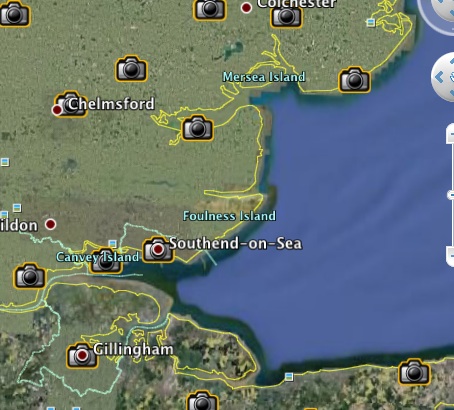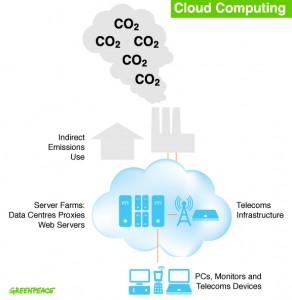Some years ago I watched a mildly-exciting film called The Day After Tomorrow, in which a huge ice-storm plunges the United States into crisis. There are vast rises in sea level (I recall a scene in which a large ship appears to be sailing down Wall Street) and an amusing scene in which a bunch of frozen survivors huddle together in the New York Public Library and keep themselves warm by burning books and possibly bound copies of scientific journals. Some people tried to interpret it as an allegory about global warming, which was patently ludicrous because everybody knows that that is a slow process in which the earth warms by degrees, CO2 concentrations increase linearly and so on, enabling us to watch the orderly, predictable approach of the apocalypse and have time to make the necessary preparations for our survival, if not for the billions of wretches who are too poor or too geographically-challenged to head for the hills.
This way of thinking about processes seems to be hard-wired into the human consciousness. We think in linear terms, of quantities and critical indicators changing monotonically, and this influences the way we think about climate change (to the extent that we think of it at all). Sure, we concede, the climate is changing, and the direction of travel doesn't look good, but it will be quite a while yet before we really hit the critical level and so we don't have to worry too much about it just now.
If the earth's climate were a simple system then that might be a rational strategy. But it's not: it's an exceedingly complex system, which means, among other things, that it's intrinsically unpredictable, is capable of having multiple stable states, and may switch between them with great rapidity. In popular terms, what popularisers like Malcolm Gladwell call "tipping points" are examples of the sudden discontinuities that interactions between feedback loops within a complex system can produce.
What brings this to mind is some stuff I've been reading over the Christmas break, notably this interesting piece in The Nation which collates a number of different sources of information and research to suggest that we might be heading for a significantly nonlinearity which would have a dramatic — and, more importantly – rapid impact on mankind's prospects.
The article and some of the associated links are worth reading at leisure but, in crude terms, the scenario it explores stems from attempts that people are making to assess the implications of the rapid disappearance of arctic sea ice — a process that is definitely under way. One impact of that will be some melting of arctic permafrost, which in turn will release vast amounts of methane into the atmosphere in a relatively short time.
Professor Peter Wadhams, a leading Arctic expert at Cambridge University, has been measuring Arctic ice for forty years, and his findings underscore McPherson’s fears. “The fall-off in ice volume is so fast it is going to bring us to zero very quickly,” Wadhams told a reporter. According to current data, he estimates “with 95% confidence” that the Arctic will have completely ice-free summers by 2018. (US Navy researchers have predicted an ice-free Arctic even earlier—by 2016.)
British scientist John Nissen, chairman of the Arctic Methane Emergency Group (of which Wadhams is a member), suggests that if the summer sea ice loss passes “the point of no return,” and “catastrophic Arctic methane feedbacks” kick in, we’ll be in an “instant planetary emergency.”
Why is this such a big deal?
In the atmosphere, methane is a greenhouse gas that, on a relatively short-term time scale, is far more destructive than carbon dioxide (CO2). It is twenty-three times as powerful as CO2 per molecule on a 100-year timescale, 105 times more potent when it comes to heating the planet on a twenty-year timescale—and the Arctic permafrost, onshore and off, is packed with the stuff. “The seabed,” says Wadham, “is offshore permafrost, but is now warming and melting. We are now seeing great plumes of methane bubbling up in the Siberian Sea…millions of square miles where methane cover is being released.”
According to a study just published in Nature Geoscience, twice as much methane as previously thought is being released from the East Siberian Arctic Shelf, a two million square kilometer area off the coast of Northern Siberia. Its researchers found that at least 17 teragrams (one million tons) of methane are being released into the atmosphere each year, whereas a 2010 study had found only seven teragrams heading into the atmosphere.
So we could be at the beginning of a big 'methane burp'? Nobody really knows what the impact of that might be (though there are some apocalyptic conjectures). For me, the main implication is that linear thinking about climate change might be dangerous.


